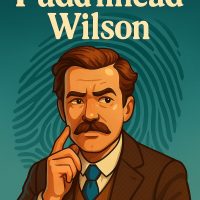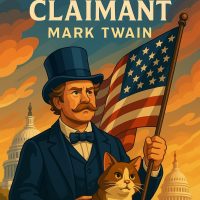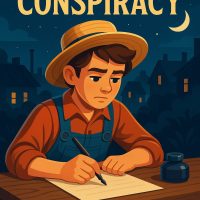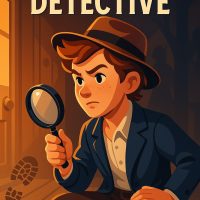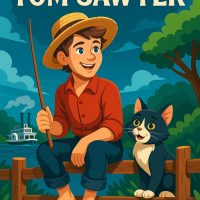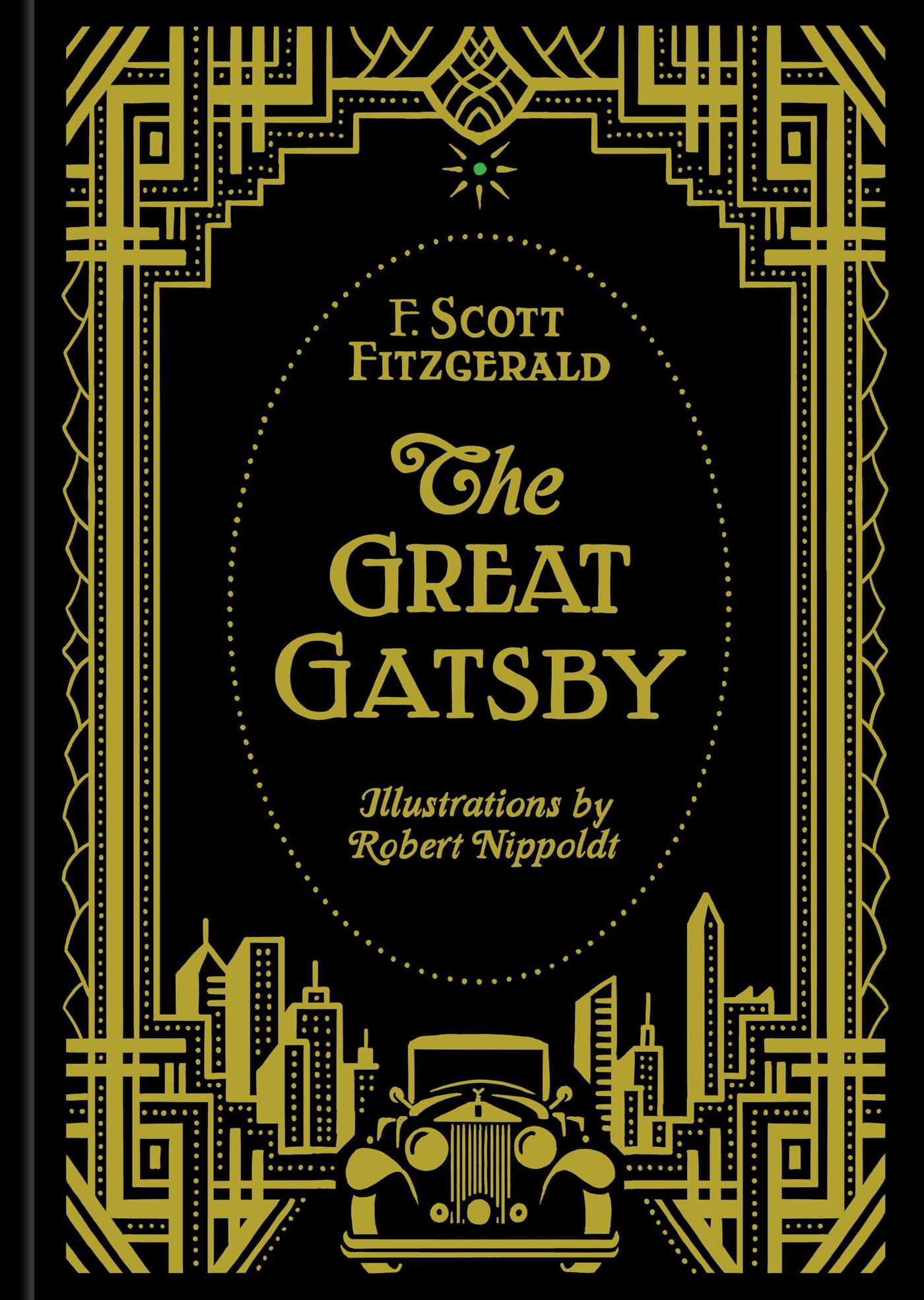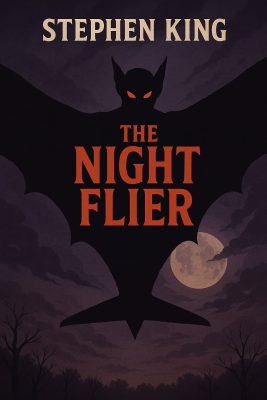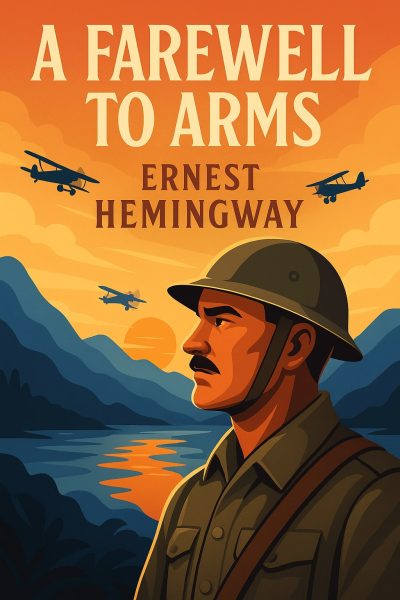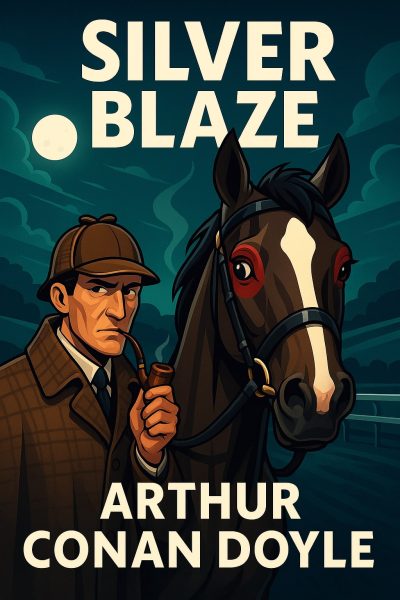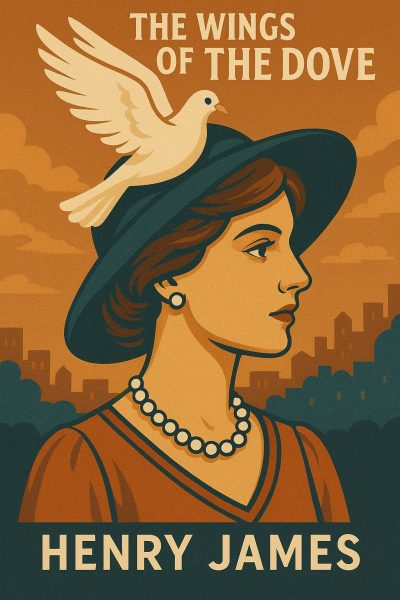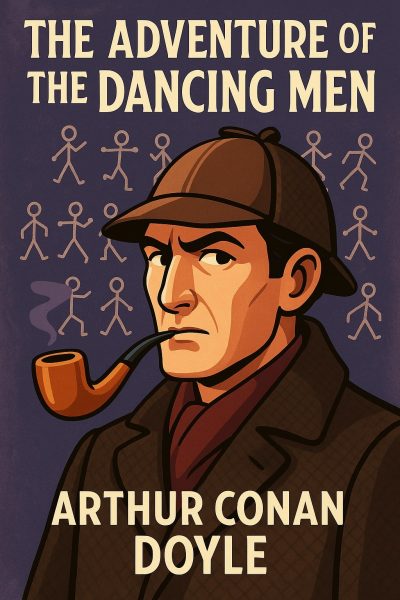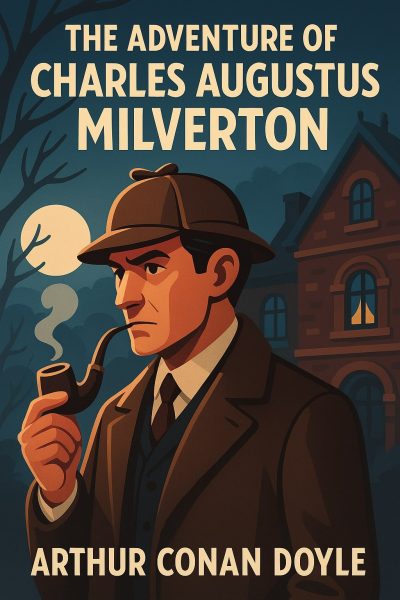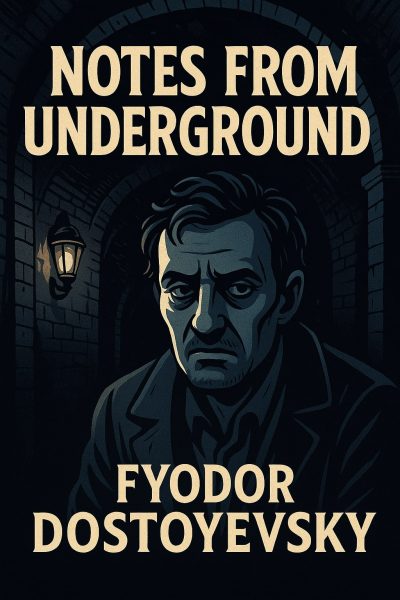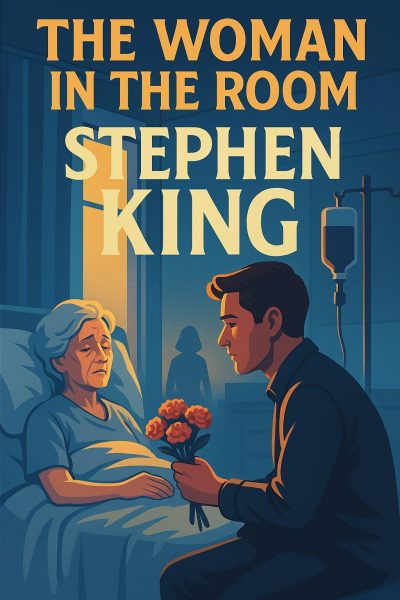Table of Contents
Chapter 1
In spite of his pilot’s license, Dees didn’t really get interested until the murders at the airport in Maryland — the third and fourth murders in the series. Then he smelled that special combination of blood and guts which readers of Inside View had come to expect. Coupled with a good dimestore mystery like this one, you were looking at the likelihood of an explosive circulation boost, and in the tabloid business, increased circulation was more than the name of the game; it was the Holy Grail.
For Dees, however, there was bad news as well as good. The good news was that he had gotten to the story ahead of the rest of the pack; he was still undefeated, still champeen, still top hog in the sty. The bad news was that the roses really belonged to Morrison . . . so far, at least. Morrison, the freshman editor, had gone on picking away at the damned thing even after Dees, the veteran reporter, had assured him there was nothing there but smoke and echoes. Dees didn’t like the idea that Morrison had smelled blood first – hated it, in fact – and this left him with a completely understandable urge to piss the man off. And he knew just how to do it.
‘Duffrey, Maryland, huh?’
Morrison nodded.
‘Anyone in the straight press pick up on it yet?’ Dees asked, and was gratified to see Morrison bristle at once.
‘If you mean has anyone suggested there’s a serial killer out there, the
answer is no,’ he said stiffly.
But it won’t be long, Dees thought.
‘But it won’t be long,’ Morrison said. ‘If there’s another one — ‘
‘Gimme the file,’ Dees said, pointing to the buff-colored folder lying on Morrison’s eerily neat desk.
The balding editor put a hand on it instead, and Dees understood two things: Morrison was going to give it to him, but not until he had been made to pay a little for his initial unbelief . . . and his lofty I’m-the-veteran-around-here attitude. Well, maybe that was all right. Maybe even the top hog in the sty needed to have his curly little tail twisted every now and then, just to refresh his memory on his place in the scheme of things.
‘I thought you were supposed to be over at the Museum of Natural History, talking to the penguin guy,’ Morrison said. The corners of his mouth curved up in a small but undeniably evil smile. ‘The one who thinks they’re smarter than people and dolphins.’
Dees pointed to the only other thing on Morrison’s desk besides the folder and the pictures of his nerdy-looking wife and three nerdy-looking kids: a large wire basket labelled DAILY BREAD. It currently contained a single thin sheaf of manuscript, six or eight pages held together with one of Dees’s distinctive magenta paper-clips, and an envelope marked CONTACT SHEETS DO NOT BEND.
Morrison took his hand off the folder (looking ready to slap it back on if Dees so much as twitched), opened the envelope, and shook out two sheets covered with black-and-white photos not much bigger than postage stamps. Each photo showed long files of penguins staring silently out at the viewer. There was something undeniably creepy about them — to Merton Morrison they looked like George Romero zombies in tuxedos. He nodded and slipped them back into the envelope. Dees disliked all editors on principle, but he had to admit that this one at least gave credit where credit was due. It was a rare attribute, one Dees suspected would cause the man all sorts of medical problems in later life. Or maybe the problems had already started. There he sat, surely not thirty-five yet, with at least seventy per cent of his skull exposed.
‘Not bad,’ Morrison said. ‘Who took them?’
‘I did,’ Dees said. ‘I always take the pix that go with my stories. Don’t you ever look at the photo credits?’
‘Not usually, no,’ Morrison said, and glanced at the temp headline Dees had slugged at the top of his penguin story. Libby Grannit in Comp would come up with a punchier, more colorful one, of course — that was, after all, her job — but Dees’s instincts were good all the way up to headlines, and he usually found the right street, if not often the actual address and apartment number. ALIEN INTELLIGENCE AT NORTH POLE, this one read. Penguins weren’t aliens, of course, and Morrison had an idea that they actually lived at the South Pole, but those things hardly mattered. Inside View readers were crazy about both Aliens and Intelligence (perhaps because a majority of them felt like the former and sensed in themselves a deep deficiency of the latter), and that was what mattered.
‘The headline’s a little lacking,’ Morrison began, ‘but — ‘
‘ — that’s what Libby’s for,’ Dees finished for him. ‘So . . . ‘
‘So?’ Morrison asked. His eyes were wide and blue and guileless behind his gold-rimmed glasses. He put his hand back down on top of the folder, smiled at Dees, and waited.
‘So what do you want me to say? That I was wrong?’
Morrison’s smile widened a millimeter or two. ‘Just that you might have been wrong. That’d do, I guess — you know what a pussycat I am.’
‘Yeah, tell me about it,’ Dees said, but he was relieved. He could take a little abasement; it was the actual crawling around on his belly that he didn’t like.
Morrison sat looking at him, right hand splayed over the file.
‘Okay; I might have been wrong.’
‘How large-hearted of you to admit it,’ Morrison said, and handed the file over.
Dees snatched it greedily, took it over to the chair by the window, and opened it. What he read this time — it was no more than a loose assemblage of wire-service stories and clippings from a few small-town weeklies — blew his mind.
I didn’t see this before, he thought, and on the heels of that: Why didn’t I see this before?
He didn’t know . . . but he did know he might have to rethink that idea of being top hog in the tabloid sty if he missed any more stories like this. He knew something else, as well: if his and Morrison’s positions had been reversed (and Dees had turned down the editor’s chair at Inside View not once but twice over the last seven years), he would have made Morrison crawl on his belly like a reptile before giving him the file.
Fuck that, he told himself. You would have fired his ass right out the door.
The idea that he might be burning out fluttered through his mind. The burnout rate was pretty high in this business, he knew. Apparently you could spend only so many years writing about flying saucers carrying off whole Brazilian villages (usually illustrated by out-of-focus photographs of light-bulbs hanging from strands of thread), dogs that could do calculus, and out-of-work daddies chopping their kids up like kindling wood. Then one day you suddenly snapped. Like Dottie Walsh, who had gone home one night and taken a bath with a dry-cleaning bag wrapped around her head.
Don’t be a fool, he told himself, but he was uneasy just the same. The story was sitting there, right there, big as life and twice as ugly. How in the hell could he have missed it?
He looked up at Morrison, who was rocked back in his desk chair with his hands laced together over his stomach, watching him. ‘Well?’ Morrison asked.
‘Yeah,’ he said. ‘This could be big. And that’s not all. I think it’s the real goods.’
‘I don’t care if it’s the real goods or not,’ Morrison said, ‘as long as it sells papers. And it’s going to sell lots of papers, isn’t it, Richard?’
‘Yes.’ He got to his feet and tucked the folder under his arm. ‘I want to run this guy’s backtrail, starting with the first one we know about, up in Maine.’
‘Richard?’
He turned back at the door and saw Morrison was looking at the contact sheets again. He was smiling.
‘What do you think if we run the best of these next to a photo of Danny DeVito in that Batman movie?’
‘It works for me,’ Dees said, and went out. Questions and self-doubts were suddenly, blessedly set aside; the old smell of blood was back in his nose, strong and bitterly compelling, and for the time being he only wanted to follow it all the way to the end. The end came a week later, not in Maine, not in Maryland, but much farther south, in North Carolina.
Chapter 2
It was summertime, which meant the living should have been easy and the cotton high, but nothing was coming easy for Richard Dees as that long day wound its way down toward dark.
The major problem was his inability — at least so far — to get into the small Wilmington airport, which served only one major carrier, a few commuter airlines, and a lot of private planes. There were heavy thunderstorm cells in the area and Dees was circling ninety miles from the airfield, pogoing up and down in the unsteady air and cursing as the last hour of daylight began to slip away. It was 7:45 P.M. by the time he was given landing clearance. That was less than forty minutes before official sundown. He didn’t know if the Night Flier stuck to the traditional rules or not, but if he did, it was going to be a close thing.
And the Flier was here; of that Dees was sure. He had found the right place, the right Cessna Skymaster. His quarry could have picked Virginia Beach, or Charlotte, or Birmingham, or some point even farther south, but he hadn’t. Dees didn’t know where he had hidden between leaving Duffrey, Maryland, and arriving here, and didn’t care. It was enough to know that his intuition had been correct – his boy had continued to work the windsock circuit. Dees had spent a good part of the last week calling all the airports south of Duffrey that seemed right for the Flier’s MO, making the rounds again and again, using his finger on the Touch-Tone in his Days Inn motel room until it was sore and his contacts on the other end had begun to express their irritation with his persistence. Yet in the end persistence had paid off, as it so often did.
Private planes had landed the night before at all of the most likely airfields, and Cessna Skymaster 3375 at all of them. Not surprising, since they were the Toyotas of private aviation. But the Cessna 337 that had landed last night in Wilmington was the one he was looking for; no question about it. He was on the guy.
Dead on the guy.
‘N471B, vector ILS runway 34,’ the radio voice drawled laconically into his earphones. ‘Fly heading 160. Descend and maintain 3,000.’
‘Heading 160. Leaving 6 for 3,000, roger.’
‘And be aware we still got some nasty weather down here.’
‘Roger,’ Dees said, thinking that ole Farmer John, down there in whatever beer-barrel passed for Air Traffic Control in Wilmington, was sure one hell of a sport to tell him that. He knew there was still nasty weather in the area; he could see the thunderheads, some with lightning still going off inside them like giant fireworks, and he had spent the last forty minutes or so circling and feeling more like a man in a blender than one in a twin-engine Beechcraft.
He flicked off the autopilot, which had been taking him around and around the same stupid patch of now-you-see-it, now-you-don’t North Carolina farmland for far too long, and grabbed a handful of wheel. No cotton down there, high or otherwise, that he could see. Just a bunch of used-up tobacco patches now overgrown with kudzu. Dees was happy to point his plane’s nose toward Wilmington and start down the ramp, monitored by pilot, ATC, and tower, for the ILS approach.
He picked up the microphone, thought about giving ole Farmer John there a yell, asking him if there happened to be anything weird going on downstairs — the dark-and-stormy-night kind of stuff Inside View readers loved, perhaps — then racked the mike again. It was still awhile until sunset; he had verified the official Wilmington time on his way down from Washington National. No, he thought, maybe he’d just keep his questions to himself for a little while longer.
Dees believed the Night Flier was a real vampire about as much as he believed it was the Tooth Fairy who had put all those quarters under his pillow when he was a kid, but if the guy thought he was a vampire — and this guy, Dees was convinced, really did — that would probably be enough to make him conform to the rules.
Life, after all, imitates art.
Count Dracula with a private pilot’s license.
You had to admit, Dees thought, it was a lot better than killer penguins plotting the overthrow of the human race.
The Beech jounced as he passed through a thick membrane of cumulus on his steady downward course. Dees cursed and trimmed the plane, which seemed increasingly unhappy with the weather.
You and me both, babes, Dees thought.
When he came into the clear again, he could see the lights of Wilmington and Wrightsville Beach clearly.
Yes, sir, the fatties who shop at 7-Eleven are gonna love this one, he thought as lightning flashed on the port side. They’re gonna pick up about seventy zillion copies of this baby when they go out for their nightly ration of Twinkies and beer.
But there was more, and he knew it.
This one could be . . . well . . . just so goddam good.
This one could be legitimate.
There was a time when a word like that never would have crossed your mind, ole buddy, he thought. Maybe you are burning out.
Still, big stacked headlines danced in his head like sugarplums. INSIDE VIEW REPORTER APPREHENDS CRAZED NIGHT FLIER. EXCLUSIVE STORY ON HOW BLOOD-DRINKING NIGHT FLIER WAS FINALLY CAUGHT. ‘NEEDED TO HAVE IT,’ DEADLY DRACULA DECLARES.
It wasn’t exactly grand opera — Dees had to admit that — but he thought it sang just the same. He thought it sang like a boid.
He picked up the mike after all and depressed the button. He knew his blood-buddy was still down there, but he also knew he wasn’t going to be comfortable until he had made absolutely sure.
‘Wilmington, this is N471B. You still got a Skymaster 337 from Maryland down there on the ramp?’
Through static: ‘Looks like it, old hoss. Can’t talk just now. I got air traffic.’
‘Has it got red piping?’ Dees persisted.
For a moment he thought he would get no answer, then: ‘Red piping, roger. Kick it off, N471B, if you don’t want me to see if I can slap an FCC fine on y’all. I got too many fish to fry tonight and not enough skillets.’
‘Thanks, Wilmington,’ Dees said in his most courteous voice. He hung up the mike and then gave it the finger, but he was grinning, barely noticing the jolts as he passed through another membrane of cloud. Skymaster, red piping, and he was willing to bet next year’s salary that if the doofus in the tower hadn’t been so busy, he would have been able to confirm the tail-number as well: N101BL.
One week, by Christ, one little week. That was all it had taken. He had found the Night Flier, it wasn’t dark yet, and as impossible as it seemed, there were no police on the scene. If there had been cops, and if they had been there concerning the Cessna, Farmer John almost certainly would have said so, sky-jam and bad weather or not. Some things were just too good not to gossip about.
I want your picture, you bastard, Dees thought. Now he could see the approach lights, flashing white in the dusk. I’ll get your story in time, but first, the picture. Just one, but I gotta have it.
Yes, because it was the picture that made it real. No fuzzy out-of-focus lightbulbs; no ‘artist’s conception’; a real by-God photo in living black-and-white. He headed down more steeply, ignoring the descent beep. His face was pale and set. His lips were pulled back slightly, revealing small, gleaming white teeth.
In the combined light of dusk and the instrument panel, Richard Dees looked quite a little bit like a vampire himself.
Chapter 3
There were many things Inside View was not — literate, for one, over-concerned with such minor matters as accuracy and ethics, for another — but one thing was undeniable: it was exquisitely attuned to horrors. Merton Morrison was a bit of an asshole (although not as much of one as Dees had thought when he’d first seen the man smoking that dumb fucking pipe of his), but Dees had to give him one thing – he had remembered the things that had made Inside View a success in the first place: buckets of blood and guts by the handful.
Oh, there were still pictures of cute babies, plenty of psychic predictions, and Wonder Diets featuring such unlikely ingestibles as beer, chocolate, and potato chips, but Morrison had sensed a sea-change in the temper of the times, and had never once questioned his own judgement about the direction the paper should take. Dees supposed that confidence was the main reason Morrison had lasted as long as he had, in spite of his pipe and his tweed jackets from Asshole Brothers of London. What Morrison knew was that the flower children of the sixties had grown into the cannibals of the nineties. Huggy therapy, political correctness, and ‘the language of feelings’ might be big deals among the intellectual upper class, but the ever-popular common man was still a lot more interested in mass murders, buried scandals in the lives of the stars, and just how Magic Johnson had gotten AIDS.
Dees had no doubt there was still an audience for All Things Bright and Beautiful, but the one for All Shit Grim and Gory had become a growth stock again as the Woodstock Generation began to discover gray in its hair and lines curving down from the corners of its petulant, self-indulgent mouth. Merton Morrison, whom Dees now recognized as a kind of intuitive genius, had made his own inside view clear in a famous memo issued to all staff and stringers less than a week after he and his pipe had taken up residence in the corner office. By all means, stop and smell the roses on your way to work, this memo suggested, but once you get to there, spread those nostrils — spread them wide — and start sniffing for blood and guts.
Dees, who had been made for sniffing blood and guts, had been delighted. His nose was the reason he was here, flying into Wilmington. There was a human monster down there, a man who thought he was a vampire. Dees had a name all picked out for him; it burned in his mind as a valuable coin might burn in a man’s pocket. Soon he would take the coin out and spend it. When he did, the name would be plastered across the tabloid display racks of every supermarket checkout counter in America, screaming at the patrons in unignorable sixty-point type.
Look out, ladies and sensation seekers, Dees thought. You don’t know it, but a very bad man is coming your way. You’ll read his real name and forget it, but that’s okay. What you’ll remember is my name for him, the name that’s going to put him right up there with Jack the Ripper and the Cleveland Torso Murderer and the Black Dahlia. You’ll remember the Night Flier, coming soon to a checkout counter near you. The exclusive story, the exclusive interview . . . but what I want most of all is the exclusive picture.
He checked his watch again and allowed himself to relax the tiniest bit (which was all he could relax). He still had almost half an hour till dark, and he would be parking next to the white Skymaster with red piping (and N101BL on the tail in a similar red) in less than fifteen minutes.
Was the Flier sleeping in town or in some motel on the way into town? Dees didn’t think so. One of the reasons for the Skymaster 337’s popularity, besides its relatively low price, was that it was the only plane its size with a belly-hold. It wasn’t much bigger than the trunk of an old VW Beetle, true, but it was roomy enough for three big suitcases or five small ones . . . and it could certainly hold a man, provided he wasn’t the size of a pro basketball player. The Night Flier could be in the Cessna’s belly-hold, provided he was (a) sleeping in the fetal position with his knees drawn up to his chin; or (b) crazy enough to think he was a real vampire; or (c) both of the above.
Dees had his money on (c).
Now, with his altimeter winding down from four to three thousand feet, Dees thought: Nope, no hotel or motel for you, my friend, am I right? When you play vampire, you’re like Frank Sinatra — you do it your way. Know what I think? I think when the belly-hold of that plane opens, the first thing I’m gonna see is a shower of graveyard earth (even if it isn’t, you can bet your upper incisors it will be when the story comes out), and then I’m gonna see first one leg in a pair of tuxedo pants, and then the other, because you are gonna be dressed, aren’t you? Oh, dear man, I think you are gonna be dressed to the nines, dressed to kill, and the auto-winder is already on my camera, and when I see that cloak flap in the breeze —
But that was where his thoughts stopped, because that was when the flashing white lights on both runways below him went out.
Chapter 4
I want to run this guy’s backtrail, he had told Merton Morrison, starting with the first one we know about, up in Maine.
Less than four hours later he had been at Cumberland County Airport, talking to a mechanic named Ezra Hannon. Mr Hannon looked as if he had recently crawled out of a gin-bottle, and Dees wouldn’t have let him within shouting distance of his own plane, but he gave the fellow his full and courteous attention just the same. Of course he did; Ezra Hannon was the first link in what Dees was beginning to think might prove to be a very important chain.
Cumberland County Airport was a dignified-sounding name for a country landing-field which consisted of two Quonset huts and two crisscrossing runways. One of these runways was actually tarred. Because Dees had never landed on a dirt runway, he requested the tarred one. The bouncing his Beech 55 (for which he was in hock up to his eyebrows and beyond) took when he landed convinced him to try the dirt when he took off again, and when he did he had been delighted to find it as smooth and firm as a coed’s breast. The field also had a windsock, of course, and of course it was patched like a pair of Dad’s old underdrawers. Places like CCA always had a windsock. It was part of their dubious charm, like the old biplane that always seemed to be parked in front of the single hangar.
Cumberland County was the most populous in Maine, but you never would have known it from its cow-patty airport, Dees thought . . . or from Ezra the Amazing Gin-Head Mechanic, for that matter. When he grinned, displaying all six of his remaining teeth, he looked like an extra from the film version of James Dickey’s Deliverance.
The airport sat on the outskirts of the much plusher town of Falmouth, existing mostly on landing fees paid by rich summer residents. Claire Bowie, the Night Flier’s first victim, had been CCA’s night traffic controller and owned a quarter interest in the airfield. The other employees had consisted of two mechanics and a second ground controller (the ground controllers also sold chips, cigarettes, and sodas; further, Dees had learned, the murdered man had made a pretty mean cheeseburger).
Mechanics and controllers also served as pump jockeys and custodians. It wasn’t unusual for the controller to have to rush back from the bathroom, where he had been swabbing out the John with Janitor-in-a-Drum, to give landing clearance and assign a runway from the challenging maze of two at his disposal. The operation was so high-pressure that during the airport’s peak summer season the night controller sometimes got only six hours’ worth of good sleep between midnight and 7:00 A.M.
Claire Bowie had been killed almost a month prior to Dees’s visit, and the picture the reporter put together was a composite created from the news stories in Morrison’s thin file and Ezra the Amazing Gin-Head Mechanic’s much more colorful embellishments. And even when he had made the necessary allowances for his primary source, Dees remained sure that something very strange had happened at this dipshit little airport in early June.
The Cessna 337, tail-number N101BL, had radioed the field for landing clearance shortly before dawn on the morning of July 9th. Claire Bowie, who had been working the night shift at the airfield since 1954, when pilots sometimes had to abort their approaches (a maneuver in those days known simply as ‘pulling up’) because of the cows that sometimes wandered onto what was then the single runway, logged the request at 4:32 A.M. The time of landing he noted as 4:49 A.M.; he recorded the pilot’s name as Dwight Renfield, and the point of N101BL’s origination as Bangor, Maine. The times were undoubtedly correct. The rest was bullshit (Dees had checked Bangor, and wasn’t surprised to find they had never heard of N101BL), but even if Bowie had known it was bullshit, it probably wouldn’t have made much difference; at CCA, the atmosphere was loose, and a landing fee was a landing fee.
The name the pilot had given was a bizarre joke. Dwight just happened to be the first name of an actor named Dwight Frye, and Dwight Frye had just happened to play, among a plethora of other parts, the role of Renfield, a slavering lunatic whose idol had been the most famous vampire of all time. But radioing UNICOM and asking for landing clearance in the name of Count Dracula might have raised suspicion even in a sleepy little place like this, Dees supposed.
Might have; Dees wasn’t really sure. After all, a landing fee was a landing fee, and ‘Dwight Renfield’ had paid his promptly, in cash, as he had also paid to top off his tanks — the money had been in the register the next day, along with a carbon of the receipt Bowie had written out.
Dees knew about the casual, hipshot way private air-traffic had been controlled at the smaller fields in the fifties and sixties, but he was still astonished by the informal treatment the Night Flier’s plane had received at CCA. It wasn’t the fifties or sixties any more, after all; this was the era of drug paranoia, and most of the shit to which you were supposed to just say no came into small harbors in small boats, or into small airports in small planes . . . planes like ‘Dwight Renfield’s’ Cessna Skymaster. A landing fee was a landing fee, sure, but Dees would have expected Bowie to give Bangor a shout about the missing flight-plan just the same, if only to cover his own ass. But he hadn’t. The idea of a bribe had occurred to Dees at this point, but his gin-soaked informant claimed that Claire Bowie was as honest as the day was long, and the two Falmouth cops Dees talked to later on had confirmed Hannon’s judgement.
Negligence seemed a likelier answer, but in the end it didn’t really matter; Inside View readers weren’t interested in such esoteric questions as how or why things happened. Inside View readers were content to know what had happened, and how long it took, and if the person it happened to had had time to scream. And pictures, of course. They wanted pictures. Great big hi-intensity black-and-whites, if possible — the kind that seemed to leap right off the page in a swarm of dots and nail you in the forebrain.
Ezra the Amazing Gin-Head Mechanic had looked surprised and considering when Dees asked where he thought ‘Renfield’ might have gone after landing.
‘Dunno,’ he said. ‘Motel, I s’pose. Musta tooken a cab.’
‘You came in at . . . what time did you say? Seven o’clock that morning? July ninth?’
‘Uh-huh. Just before Claire left to go home.’
‘And the Cessna Skymaster was parked and tied down and empty?’
‘Yep. Parked right where yours is now.’ Ezra pointed, and Dees pulled back a little. The mechanic smelled quite a little bit like a very old Roquefort cheese which had been pickled in Gilbey’s Gin.
‘Did Claire happen to say if he called a cab for the pilot? To take him to a motel? Because there don’t seem to be any in easy walking distance.’
‘There ain’t,’ Ezra agreed. ‘Closest one’s the Sea Breeze, and that’s two mile away. Maybe more.’ He scratched his stubbly chin. ‘But I don’t remember Claire saying ary word about callin the fella a cab.’
Dees made a mental note to call the cab companies in the area just the same. At that time he was going on what seemed like a reasonable assumption: that the guy he was looking for slept in a bed, like almost everyone else.
‘What about a limo?’ he asked.
‘Nope,’ Ezra said more positively, ‘Claire didn’t say nothing about no limbo, and he woulda mentioned that.’
Dees nodded and decided to call the nearby limo companies, too. He would also question the rest of the staff, but he expected no light to dawn there; this old boozehound was about all there was. He’d had a cup of coffee with Claire before Claire left for the day, and another with him when Claire came back on duty that night, and it looked like that was all she wrote. Except for the Night Flier himself, Ezra seemed to have been the last person to see Claire Bowie alive.
The subject of these ruminations looked slyly off into the distance, scratched the wattles below his chin, then shifted his bloodshot gaze back to Dees. ‘Claire didn’t say nothing about no cab or limbo, but he did say something else.’
‘That so?’
‘Yep,’ Ezra said. He unzipped a pocket of his grease-stained coverall, removed a pack of Chesterfields, lit one up, and coughed a dismal old man’s cough. He looked at Dees through the drifting smoke with an expression of half-baked craftiness. ‘Might not mean nothing, but then again, it might. It sure struck Claire perculyer, though. Must have, because most of the time old Claire wouldn’t say shit if he had a mouthful.’
‘What was it he said?’
‘Don’t quite remember,’ Ezra said. ‘Sometimes, you know, when I forget things, a picture of Alexander Hamilton sorta refreshes my memory.’
‘How about one of Abe Lincoln?’ Dees asked dryly.
After a moment’s consideration — a short one — Hannon agreed that sometimes Lincoln also did the trick, and a portrait of this gentleman consequently passed from Dees’s wallet to Ezra’s slightly palsied hand. Dees thought that a portrait of George Washington might have turned the trick, but he wanted to make sure the man was entirely on his side . . . and besides, it all came out of the expense account.
‘So give.’
‘Claire said the guy looked like he must be goin to one hell of a fancy party,’ Ezra said.
‘Oh? Why was that?’ Dees was thinking he should have stuck with Washington after all.
‘Said the guy looked like he just stepped out of a bandbox. Tuxedo, silk tie, all that stuff.’ Ezra paused. ‘Claire said the guy was even wearin a big cloak. Red as a fire engine inside, black as a woodchuck’s asshole outside. Said when it spread out behind him, it looked like a goddam bat’s wing.’
A large word lit in red neon suddenly flashed on in Dees’s mind, and the word was BINGO.
You don’t know it, my gin-soaked friend, Dees thought, but you may have just said the words that are going to make you famous.
‘All these questions about Claire,’ Ezra said, ‘and you ain’t never once ast if I saw anything funny.’
‘Did you?’
‘As a matter of fact, I did.’
‘What was that, my friend?’
Ezra scratched his stubbly chin with long, yellow nails, looked wisely at Dees from the corners of his bloodshot eyes, and then took another puff on his cigarette.
‘Here we go again,’ Dees said, but he produced another picture of Abe Lincoln and was careful to keep his voice and face amiable. His instincts were wide awake now, and they were telling him that Mr Ginhead wasn’t quite squeezed dry. Not yet, anyway.
‘That don’t seem like enough for all I’m tellin you,’ Ezra said reproachfully. ‘Rich city fella like you ought to be able to do better’n ten bucks.’
Dees looked at his watch — a heavy Rolex with diamonds gleaming on the face. ‘Gosh!’ he said. ‘Look how late it’s getting! And I haven’t even been over to talk with the Falmouth police yet!’
Before he could do more than start to get up, the five had disappeared from between his fingers and had joined its mate in the pocket of Hannon’s coverall.
‘All right, if you’ve got something else to tell, tell it,’ Dees said. The amiability was gone now. ‘I’ve got places to go and people to see.’
The mechanic thought it over, scratching his wattles and sending out little puffs of ancient, cheesy smell. Then he said, almost reluctantly: ‘Seen a big pile of dirt under that Skymaster. Right under the luggage bay, it was.’
‘That so?’
‘Ayuh. Kicked it with my boot.’
Dees waited. He could do that.
‘Nasty stuff. Full of worms.’
Dees waited. This was good, useful stuff, but he didn’t think the old man was wrung completely dry even yet.
‘And maggots,’ Ezra said. ‘There was maggots, too. Like where something died.’
Dees stayed that night at the Sea Breeze Motel, and was winging his way to the town of Alderton in upstate New York by eight o’clock the next morning.
Chapter 5
Of all the things Dees didn’t understand about his quarry’s movements, the thing which puzzled him the most was how leisurely the Flier had been. In Maine and in Maryland, he had actually lingered before killing. His only one-night stand had been in Alderton which he had visited two weeks after doing Claire Bowie.
Lakeview Airport in Alderton was even smaller than CCA — a single unpaved runway and a combined Ops/UNICOM that was no more than a shed with a fresh coat of paint. There was no instrument approach; there was, however, a large satellite dish so none of the flying farmers who used the place would have to miss Murphy Brown or Wheel of Fortune or anything really important like that.
One thing Dees liked a lot: the unpaved Lakeview runway was just as silky-smooth as the one in Maine had been. I could get used to this, Dees thought as he dropped the Beech neatly onto the surface and began to slow it down. No big thuds over asphalt patches, no potholes that want to ground-loop you after you come in . . . yeah, I could get used to this real easy.
In Alderton, nobody had asked for pictures of Presidents or friends of Presidents. In Alderton, the whole town — a community of just under a thousand souls – was in shock, not merely the few part-timers who, along with the late Buck Kendall, had run Lakeview Airport almost as a charity (and certainly in the red). There was really no one to talk to, anyway, not even a witness of the Ezra Hannon caliber. Hannon had been bleary, Dees reflected, but at least he had been quotable.
‘Must have been a mighty man,’ one of the part-timers told Dees. ‘Ole Buck, he dressed out right around two-twenty, and he was easy most of the time, but if you did get him riled, he made you sorry. Seen him box down a fella in a carny show that came through P’keepsie two years ago. That kind of fightin ain’t legal, accourse, but Buck was short a payment on that little Piper of his, so he boxed that carny fighter down. Collected two hundred dollars and got it to the loan comp’ny about two days before they was gonna send out someone to repo his ride, I guess.’
The part-timer shook his head, looking genuinely distressed, and Dees wished he’d thought to uncase his camera. Inside View readers would have lapped up that long, lined, mournful face. Dees made a mental note to find out if the late Buck Kendall had had a dog. Inside View readers also lapped up pictures of the dead man’s dog. You posed it on the porch of the deceased’s house and captioned it BUFFY’S LONG WAIT BEGINS, or something similar.
‘It’s a damn shame,’ Dees said sympathetically.
The part-timer sighed and nodded. ‘Guy musta got him from behind. That’s the only way I can figger it.’
Dees didn’t know from which direction Gerard ‘Buck’ Kendall had been gotten, but he knew that this time the victim’s throat had not been ripped out. This time there were holes, holes from which ‘Dwight Renfield’ had presumably sucked his victim’s blood. Except, according to the coroner’s report, the holes were on opposite sides of the neck, one in the jugular vein and the other in the carotid artery. They weren’t the discreet little bite marks of the Bela Lugosi era or the slightly gorier ones of the Christopher Lee flicks, either. The coroner’s report spoke in centimeters, but Dees could translate well enough, and Morrison had the indefatigable Libby Grannit to explain what the coroner’s dry language only partially revealed: the killer either had teeth the size of one of View’s beloved Bigfeet, or he had made the holes in Kendall’s neck in a much more prosaic fashion – with a hammer and a nail.
DEADLY NIGHT FLIER SPIKED VICTIMS, DRANK THEIR BLOOD, both men thought at different places on the same day. Not bad.
The Night Flier had requested permission to land at Lakeview Airport shortly after 10:30 P.M. on the night of July 23rd. Kendall had granted permission and had noted a tail-number with which Dees had become very familiar: N101BL. Kendall had noted ‘name of pilot’ as ‘Dwite Renfield’ and the ‘make and model of aircraft’ as ‘Cessna Skymaster 337’. No mention of the red piping, and of course no mention of the sweeping bat-wing cloak that was as red as a fire engine on the inside and as black as a woodchuck’s asshole on the outside, but Dees was positive of both, just the same.
The Night Flier had flown into Alderton’s Lakeview Airport shortly after ten-thirty, killed that strapping fellow Buck Kendall, drunk his blood, and flown out again in his Cessna sometime before Jenna Kendall came by at five o’clock on the morning of the twenty-fourth to give her husband a fresh-made waffle and discovered his exsanguinated corpse instead.
As Dees stood outside the ramshackle Lakeview hangar/tower mulling these things over, it occurred to him that if you gave blood, the most you could expect was a cup of orange juice and a word of thanks. If you took it, however — sucked it, to be specific — you got headlines. As he turned the rest of a bad cup of coffee out on the ground and headed toward his plane, ready to fly south to Maryland, it occurred to Richard Dees that God’s hand might have shaken just a tiny bit when He was finishing off the supposed master-work of His creative empire.
Chapter 6
Now, two bad hours after leaving Washington National, things had suddenly gotten a lot worse, and with shocking suddenness. The runway lights had gone out, but Dees now saw that wasn’t all that had gone out — half of Wilmington and all of Wrightsville Beach were also dark. ILS was still there, but when Dees snatched the mike and screamed, ‘What happened? Talk to me, Wilmington!’ he got nothing back but a screech of static in which a few voices babbled like distant ghosts.
He jammed the mike back, missing the prong. It thudded to the cockpit floor at the end of its curled wire, and Dees forgot it. The grab and the yell had been pure pilot’s instinct and no more. He knew what had happened as surely as he knew the sun set in the west . . . which it would do very soon now. A stroke of lightning must have scored a direct hit on a power substation near the airport. The question was whether or not to go in anyway.
‘You had clearance,’ one voice said. Another immediately (and correctly) replied that that was so much bullshit rationalization. You learned what you were supposed to do in a situation like this when you were still the equivalent of a student driver. Logic and the book tell you to head for your alternate and try to contact ATC. Landing under snafu conditions such as these could cost him a violation and a hefty fine.
On the other hand, not landing now — right now — could lose him the Night Flier. It might also cost a life (or lives), but Dees barely factored this into the equation . . . until an idea went off like a flashbulb in his mind, an inspiration that occurred, as most of his inspirations did, in huge tabloid type:
HEROIC REPORTER SAVES (fill in a number, as large as possible, which was pretty large, given the amazingly generous borders that mark the range of human credulity) FROM CRAZED NIGHT FLIER.
Eat that, Farmer John, Dees thought, and continued his descent toward Runway 34.
The runway lights down there suddenly flashed on, as if approving his decision, then went out again, leaving blue afterimages on his retinas that turned the sick green of spoiled avocados a moment later. Then the weird static coming from the radio cleared and Farmer John’s voice screamed: ‘Haul port, N471B: Piedmont, haul starboard: Jesus, oh Jesus, midair, I think we got a midair — ‘
Dees’s self-preservation instincts were every bit as well honed as those which smelled blood in the bush. He never even saw the Piedmont Airlines 727’s strobe lights. He was too busy banking as tightly to port as the Beech could bank — which was as tight as a virgin’s cooze, and Dees would be happy to testify to that fact if he got out of this shitstorm alive — as soon as the second word was out of Farmer John’s mouth. He had a momentary sight/sense of something huge only inches above him, and then the Beech 55 was taking a beating that made the previous rough air seem like glass. His cigarettes flew out of his breast pocket and streamed everywhere. The half-dark Wilmington skyline tilted crazily. His stomach seemed to be trying to squeeze his heart all the way up his throat and into his mouth. Spit ran up one cheek like a kid whizzing along a greased slide. Maps flew like birds. The air outside now raved with jet thunder as well as the kind nature made. One of the windows in the four-seat passenger compartment imploded, and an asthmatic wind whooped in, skirling everything not tied down back there into a tornado.
‘Resume your previous altitude assignment, N471B!’ Farmer John was screaming. Dees was aware that he’d just ruined a two-hundred-dollar pair of pants by spraying about a pint of hot piss into them, but he was partially soothed by a strong feeling that old Farmer John had just loaded his Jockey shorts with a truckload or so of fresh Mars Bars. Sounded that way, anyhow.
Dees carried a Swiss Army knife. He took it from his right pants pocket and, holding the wheel with his left hand, cut through his shirt just above the left elbow, bringing blood. Then with no pause, he made another cut, shallow, just below his left eye. He folded the knife shut and stuffed it into the elasticized map pocket in the pilot’s door. Gotta clean it later, he thought. And if I forget it, I could be in deep shit. But he knew he wouldn’t forget, and considering the things the Night Flier had gotten away with, he thought he’d be okay.
The runway lights came on again, this time for good, he hoped, although their pulsing quality told him they were being powered by a generator. He homed the Beech in again on Runway 34. Blood ran down his left cheek to the corner of his mouth. He sucked some in and then spat a pink mixture of blood and spit into his IVSI. Never miss a trick; just keep following those instincts and they’d always take you home.
He looked at his watch. Sunset was only fourteen minutes away now. This was cutting it much too close to the bone.
‘Pull up, Beech!’ Farmer John yelled. ‘Are you deaf?’
Dees groped for the mike’s kinked wire without ever taking his eyes from the runway lights. He pulled the wire through his fingers until he got the mike itself. He palmed it and depressed the send button.
‘Listen to me, you chicken-fried son of a bitch,’ he said, and now his lips were pulled all the way back to the gum line. ‘I missed getting turned into strawberry jam by that 727 because your shit genny didn’t kick in when it was supposed to; as a result I had no ATC comm. I don’t know how many people on the airliner just missed getting turned into strawberry jam, but I bet you do, and I know the cockpit crew does. The only reason those guys are still alive is because the captain of that boat was bright enough to allemande right, and I was bright enough to do-si-do, but I have sustained both structural and physical damage. If you don’t give me a landing clearance right now, I’m going to land anyway. The only difference is that if I have to land without clearance, I’m going to have you up in front of an FAA hearing. But first I will personally see to it that your head and your asshole change places. Have you got that, hoss?’
A long, static-filled silence. Then a very small voice, utterly unlike Farmer John’s previous hearty ‘Hey bo’!’ delivery, said, ‘You’re cleared to land Runway 34, N471B.’
Dees smiled and homed in on the runway.
He depressed the mike button and said, ‘I got mean and yelling. I’m sorry. It only happens when I almost die.’
No response from the ground.
‘Well, fuck you very much,’ Dees said, and then headed on down, resisting the impulse to take a quick glance at his watch as he did so.
Chapter 7
Dees was case-hardened and proud of it, but there was no use kidding himself; what he found in Duffrey gave him the creeps. The Night Flier’s Cessna had spent another entire day — July 31st — on the ramp, but that was really only where the creeps began. It was the blood his loyal Inside View readers would care about, of course, and that was just as it should be, world without end, amen, amen, but Dees was increasingly aware that blood (or, in the case of good old Ray and Ellen Sarch, the lack of blood) was only where this story started. Below the blood were caverns dark and strange.
Dees arrived in Duffrey on August 8th, by then barely a week behind the Night Flier. He wondered again where his batty buddy went between strikes. Disney World? Busch Gardens? Atlanta, maybe, to check out the Braves? Such things were relatively small potatoes right now, with the chase still on, but they would be valuable later on. They would become, in fact, the journalistic equivalent of Hamburger Helper, stretching the leftovers of the Night Flier story through a few more issues, allowing readers to resavor the flavor even after the biggest chunks of raw meat had been digested.
Still, there were caverns in this story — dark places into which a man might drop and be lost forever. That sounded both crazy and corny, but by the time Dees began to get a picture of what had gone on in Duffrey, he had actually begun to believe it . . . which meant that part of the story would never see print, and not just because it was personal. It violated Dees’s single iron-clad rule: Never believe what you publish, and never publish what you believe. It had, over the years, allowed him to keep his sanity while those all about him had been losing theirs.
He had landed at Washington National — a real airport for a change — and rented a car to take him the sixty miles to Duffrey, because without Ray Sarch and his wife, Ellen, there was no Duffrey Airfield. Aside from Ellen’s sister, Raylene, who was a pretty fair Socket Wrench Susie, the two of them had been the whole shebang. There was a single oiled-dirt runway (oiled both to lay the dust and to discourage the growth of weeds) and a control booth not much bigger than a closet attached to the Jet-Aire trailer where the Sarch couple lived. They were both retired, both fliers, both reputedly as tough as nails, and still crazy in love with each other even after almost five decades of marriage.
Further, Dees learned, the Sarches watched the private air-traffic in and out of their field with a close eye; they had a personal stake in the war on drugs. Their only son had died in the Florida Everglades, trying to land in what looked like a clear stretch of water with better than a ton of Acapulco Gold packed into a stolen Beech 18. The water had been clear . . . except for a single stump, that was. The Beech 18 hit it, water-looped, and exploded. Doug Sarch had been thrown clear, his body smoking and singed but probably still alive, as little as his grieving parents would want to believe such a thing. He had been eaten by gators, and all that remained of him when the DBA guys finally found him a week later was a dismembered skeleton, a few maggoty scraps of flesh, a charred pair of Calvin Klein jeans, and a sport coat from Paul Stuart, New York. One of the sport-coat pockets had contained better than twenty thousand dollars in cash; another had yielded nearly an ounce of Peruvian flake cocaine.
‘It was drugs and the motherfuckers who run em killed my boy,’ Ray Sarch had said on several occasions, and Ellen Sarch was willing to double and redouble on that one. Her hatred of drugs and drug dealers, Dees was told again and again (he was amused by the nearly unanimous feeling in Duffrey that the murder of the elderly Sarches had been a ‘gangland hit’), was exceeded only by her grief and bewilderment over the seduction of her son by those very people.
Following the death of their son, the Sarches had kept their eyes peeled for anything or anyone who looked even remotely like a drug transporter. They had brought the Maryland State Police out to the field four times on false alarms, but the State Bears hadn’t minded because the Sarches had also blown the whistle on three small transporters and two very big ones. The last had been carrying thirty pounds of pure Bolivian cocaine. That was the kind of bust that made you forget a few false alarms, the sort of bust that made promotions.
So very late in the evening of July 30th comes this Cessna Skymaster with a number and description that had gone out to every airfield and airport in America, including the one in Duffrey; a Cessna whose pilot had identified himself as Dwight Renfield, point of origination, Bayshore Airport, Delaware, a field which had never heard of ‘Renfield’ or a Skymaster with tail-number N101BL; the plane of a man who was almost surely a murderer.
‘If he’d flown in here, he’d be in the stir now,’ one of the Bayshore controllers had told Dees over the phone, but Dees wondered. Yes. He wondered very much.
The Night Flier had landed in Duffrey at 11:27 P.M., and ‘Dwight Renfield’ had not only signed the Sarches’ logbook but also had accepted Ray Sarch’s invitation to come into the trailer, have a beer, and watch a rerun of Gunsmoke on TNT. Ellen Sarch had told all of this to the proprietor of the Duffrey Beauty Bar the following day. This woman, Selida McCam-mon, had identified herself to Dees as one of the late Ellen Sarch’s closest friends.
When Dees asked how Ellen had seemed, Selida had paused and then said, ‘Dreamy, somehow. Like a high-school girl with a crush, almost seventy years old or not. Her color was so high I thought it was make-up, until I started in on her perm. Then I saw that she was just . . . you know . . . ‘ Selida McCammon shrugged. She knew what she meant but not how to say it.
‘Het up,’ Dees suggested, and that made Selida McCammon laugh and clap her hands.
‘Het up! That’s it! You’re a writer, all right!’
‘Oh, I write like a boid,’ Dees said, and offered a smile he hoped looked good-humored and warm. This was an expression he had once practiced almost constantly and continued to practice with fair regularity in the bedroom mirror of the New York apartment he called his home, and in the mirrors of the hotels and motels that were really his home. It seemed to work — Selida McCammon answered it readily enough — but the truth was that Dees had never felt good-humored and warm in his life. As a kid he had believed these emotions didn’t really exist at all; they were just a masquerade, a social convention. Later on he decided he had been wrong about that; most of what he thought of as ‘Reader’s Digest emotions’ were real, at least for most people. Perhaps even love, the fabled Big Enchilada, was real. That he himself could not feel these emotions was undoubtedly a shame, but hardly the end of the world. There were, after all, people out there with cancer, and AIDS, and the memory-spans of brain-damaged parakeets. When you looked at it that way, you quickly realized that being deprived of a few huggy-kissy emotions was fairly small beans. The important thing was that if you could manage to stretch the muscles of your face in the right directions every now and then, you were fine. It didn’t hurt and it was easy; if you could remember to zip up your fly after you took a leak, you could remember to smile and look warm when it was expected of you. And an understanding smile, he had discovered over the years, was the world’s best interview tool. Once in awhile a voice inside asked him what his own inside view was, but Dees didn’t want an inside view. He only wanted to write and to take photographs. He was better at the writing, always had been and always would be, and he knew it, but he liked the photographs better just the same. He liked to touch them. To see how they froze people either with their real faces hung out for the whole world to see or with their masks so clearly apparent that they were beyond denial. He liked how, in the best of them, people always looked surprised and horrified. How they looked caught.
If pressed, he would have said the photographs provided all the inside view he needed, and the subject had no relevance here, anyway. What did was the Night Flier, his little batty buddy, and how he had waltzed into the lives of Ray and Ellen Sarch a week or so earlier.
The Flier had stepped out of his plane and walked into an office with a red-bordered FAA notice on the wall, a notice which suggested there was a dangerous guy out there driving a Cessna Skymaster 337, tail-number N101BL, who might have murdered two men. This guy, the notice went on, might or might not be calling himself Dwight Renfield. The Skymaster had landed, Dwight Renfield had signed in and had almost surely spent the following day in the belly-hold of his plane. And what about the Sarches, those two sharp-eyed old folks?
The Sarches had said nothing; the Sarches had done nothing.
Except that latter wasn’t quite right, Dees had discovered. Ray Sarch had certainly done something; he had invited the Night Flier in to watch an old Gunsmoke episode and drink a beer with his wife. They had treated him like an old friend. And then, the next day, Ellen Sarch had made an appointment at the Beauty Bar, which Selida McCammon had found surprising; Ellen’s visits were usually as regular as clockwork, and this one was at least two weeks before Selida would next have expected her. Her instructions had been unusually explicit; she had wanted not just the usual cut but a perm . . . and a little color, too.
‘She wanted to look younger,’ Selida McCammon told Dees, and then wiped a tear from one cheek with the side of her hand.
But Ellen Sarch’s behavior had been pedestrian compared to that of her husband. He had called the FAA at Washington National and told them to issue a NOTAM, removing Duffrey from the active-airfield grid, at least for the time being. He had, in other words, pulled down the shades and closed up the shop.
On his way home, he’d stopped for gas at the Duffrey Texaco and told Norm Wilson, the proprietor, that he thought he was coming down with the flu. Norm told Dees that he thought Ray was probably right about that -he’d looked pale and wan, suddenly even older than his years.
That night, the two vigilant fire wardens had, in effect, burned to death. Ray Sarch was found in the little control room, his head torn off and cast into the far corner, where it sat on a ragged stump of neck, staring toward the open doorway with wide, glazed eyes, as if there were actually something there to see.
His wife had been found in the bedroom of the Sarch trailer. She was in bed. She was dressed in a peignoir so new it might never have been worn before that night. She was old, a deputy had told Dees (at twenty-five dollars he was a more expensive fuck than Ezra the Amazing Gin-Head Mechanic, but worth it), but you still only had to take one look to know that there was a woman who’d dressed for bed with loving on her mind. Dees had liked the c w twang so much that he wrote it down in his notebook. Those huge, spike-sized holes were driven into her neck, one in the carotid, the other in the jugular. Her face was composed, her eyes closed, her hands on her bosom.
Although she had lost almost every drop of blood in her body, there were only spots on the pillows beneath her, and a few more spots on the book which lay open on her stomach: The Vampire Lestat, by Anne Rice.
And the Night Flier?
Sometime just before midnight on July 31st, or just after it on the morning of August 1st, he had simply flown away. Like a boid.
Or a bat.
Chapter 8
Dees touched down in Wilmington seven minutes before official sunset. While he was throttling back, still spitting blood out of his mouth from the cut below his eye, he saw lightning strike down with blue-white fire so intense that it nearly blinded him. On the heels of the light came the most deafening thunderclap he had ever heard. His subjective opinion of the sound was confirmed when another window in the passenger compartment, stellated by the near miss with the Piedmont 727, now coughed inward in a spray of junk-shop diamonds.
In the brilliant glare he saw a squat, cubelike building on the port side of Runway 34 impaled by the bolt. It exploded, shooting fire into the sky in a column that, although brilliant, did not even come close to the power of the bolt that had ignited it.
Like lighting a stick of dynamite with a baby nuke, Dees thought confusedly, and then: The genny. That was the genny.
The lights — all of them, the white lights that marked the edges of the runway and the bright red bulbs that marked its end — were suddenly gone, as if they had been no more than candles puffed out by a strong gust of wind. All at once Dees was rushing at better than eighty miles an hour from dark into dark.
The concussive force of the explosion which had destroyed the airport’s main generator struck the Beech like a fist – did more than strike it, hammered it like a looping haymaker. The Beech, still hardly knowing it had become a ground-bound creature again, skittered affrightedly to starboard, rose, and came down with the right wheel pogoing up and down over something — somethings — that Dees vaguely realized were landing lights.
Go port! his mind screamed. Go port, you asshole!
He almost did before his colder mind asserted itself. If he hauled the wheel to port at this speed, he would ground-loop. Probably wouldn’t explode, considering how little fuel was left in the tanks, but it was possible. Or the Beech might simply twist apart, leaving Richard Dees from the gut on down twitching in his seat, while Richard Dees from the gut on up went in a different direction, trailing severed intestines like party-favors and dropping his kidneys on the concrete like a couple of oversized chunks of birdshit.
Ride it out! he screamed at himself. Ride it out, you son of a bitch, ride it out!
Something — the genny’s secondary LP tanks, he guessed when he had time for guessing – exploded then, buffeting the Beech even farther to starboard, but that was okay, it got him off the dead landing lights, and all at once he was running with relative smoothness again, port wheel on the edge of Runway 34, starboard wheel on the spooky verge between the lights and the ditch he had observed on the right of the runway. The Beech was still shuddering, but not badly, and he understood that he was running on one flat, the starboard tire shredded by the landing lights it had crushed.
He was slowing down, that was what mattered, the Beech finally beginning to understand that it had become a different thing, a thing that belonged to the land again. Dees was starting to relax when he saw the wide-body Learjet, the one the pilots called Fat Albert, looming ahead of him, parked insanely across the runway where the pilot had stopped on his taxi out to Runway 5.
Dees bore down on it, saw lighted windows, saw faces staring out at him with the gape of idiots in an asylum watching a magic trick, and then, without thinking, he pushed full right rudder, bouncing the Beech off the runway and into the ditch, missing the Lear by approximately an inch and a half. He heard faint screams but was really aware of nothing but the now exploding in front of him like a string of firecrackers as the Beech tried to become a thing of the air again, helpless to do so with the flaps down and the engines dropping revs but trying anyway; there was a leap like a convulsion in the dying light of the secondary explosion, and then he was skidding across a taxi way, seeing the General Aviation Terminal for a moment with its corners lit by emergency lights that ran on storage batteries, seeing the parked planes — one of them almost surely the Night Flier’s Skymaster — as dark crepe-paper silhouettes against a baleful orange light that was the sunset, now revealed by the parting thunderheads.
I’m going over! he screamed to himself, and the Beech did try to roll; the port wing struck a fountain of sparks from the taxiway nearest the terminal and its tip actually broke free, wheeling off into the scrub where friction-heat awoke a dim fire in the wet weeds.
Then the Beech was still, and the only sounds were the snowy roar of static from the radio, the sound of broken bottles fizzing their contents onto the carpet of the passenger compartment, and the frenzied hammering of Dees’s own heart. He slammed the pop release on his harness and headed for the pressurized hatch even before he was totally sure he was alive.
What happened later he remembered with eidetic clarity, but from the moment the Beech skidded to a stop on the taxiway, ass-end to the Lear and tilted to one side, to the moment he heard the first screams from the terminal, all he remembered for sure was swinging back to get his camera. He couldn’t leave the plane without his camera; the Nikon was the closest thing Dees had to a wife. He’d bought it in a Toledo hockshop when he was seventeen and kept it with him ever since. He had added lenses, but the basic box was about the same now as it had been then; the only modifications had been the occasional scratch or dent that came with the job. The Nikon was in the elasticized pocket behind his seat. He pulled it out, looked at it to make sure it was intact, saw that it was. He slung it around his neck and bent over the hatch.
He threw the lever, jumped out and down, staggered, almost fell, and caught his camera before it could strike the concrete of the taxiway. There was another growl of thunder, but only a growl this time, distant and unthreatening. A breeze touched him like the caressing touch of a kind hand on his face . . . but more icily below the belt. Dees grimaced. How he had pissed his pants when his Beech and the Piedmont jet had barely scraped by each other would also not be in the story.
Then a thin, drilling shriek came from the General Aviation Terminal — a scream of mingled agony and horror. It was as if someone had slapped Dees across the face. He came back to himself. He centered on his goal again. He looked at his watch. It wasn’t working. Either the concussion had broken it or it had stopped. It was one of those amusing antiques you had to wind up, and he couldn’t remember when he had last done it.
Was it sunset? It was fucking dark out, yes, but with all the thunderheads massed around the airport, it was hard to tell how much that meant. Was it?
Another scream came — no, not a scream, a screech — and the sound of breaking glass.
Dees decided sunset no longer mattered.
He ran, vaguely aware that the genny’s auxiliary tanks were still burning and that he could smell gas in the air. He tried to increase his speed but it seemed he was running in cement. The terminal was getting closer, but not very fast. Not fast enough.
‘Please, no! Please, no! PLEASE NO! OH PLEASE, PLEASE NO!’
This scream, spiraling up and up, was suddenly cut off by a terrible, inhuman howl. Yet there was something human in it, and that was perhaps the most terrible thing of all. In the chancy light of the emergency lamps mounted on the corners of the terminal, Dees saw something dark and flailing shatter more glass in the wall of the terminal that faced the parking area — that wall was almost entirely glass — and come flying out. It landed on the ramp with a soggy thud, rolled, and Dees saw it was a man.
The storm was moving away but lightning still flickered fitfully, and as Dees ran into the parking area, panting now, he finally saw the Night Flier’s plane, N101BL painted boldly on the tail. The letters and numbers looked black in this light, but he knew they were red and it didn’t matter, anyway. The camera was loaded with fast black-and-white film and armed with a smart flash which would fire only when the light was too low for the film’s speed.
The Skymaster’s belly-hold hung open like the mouth of a corpse. Below it was a large pile of earth in which things squirmed and moved. Dees saw this, did a double-take, and skidded to a stop. Now his heart was filled not just with fright but with a wild, capering happiness. How good it was that everything had come together like this!
Yes, he thought, but don’t you call it luck — don’t you dare call it luck. Don’t you even call it hunch.
Correct. It wasn’t luck that had kept him holed up in that shitty little motel room with the clanky air-conditioner, not hunch — not precisely hunch, anyway — that had tied him to the phone hour after hour, calling flyspeck airports and giving the Night Flier’s tail-number over and over again. That was pure reporter’s instinct, and here was where it all started paying off. Except this was no ordinary payoff; this was the jackpot, El Dorado, that fabled Big Enchilada.
He skidded to a stop in front of the yawning belly-hold and tried to bring the camera up. Almost strangled himself on the strap. Cursed. Unwound the strap. Aimed.
From the terminal came another scream — that of a woman or a child. Dees barely noticed. The thought that there was a slaughter going on in there was followed by the thought that slaughter would only fatten the story, and then both thoughts were gone as he snapped three quick shots of the Cessna, making sure to get the gaping belly-hold and the number on the tail. The auto-winder hummed.
Dees ran on. More glass smashed. There was another thud as another body was ejected onto the cement like a rag doll that had been stuffed full of some thick dark liquid like cough-syrup. Dees looked, saw confused movement, the billowing of something that might have been a cape . . . but he was still too far away to tell. He turned. Snapped two more pictures of the plane, these shots dead-on. The gaping belly-hold and the pile of earth would be stark and undeniable in the print.
Then he whirled and ran for the terminal. The fact that he was armed with only an old Nikon never crossed his mind.
He stopped ten yards away. Three bodies out here, two adults, one of each sex, and one that might have been either a small woman or a girl of thirteen or so. It was hard to tell with the head gone.
Dees aimed the camera and fired off six quick shots, the flash flickering its own white lightning, the auto-winder making its contented little whizzing sound.
His mind never lost count. He was loaded with thirty-six shots. He had taken eleven. That left twenty-five. There was more film stuffed into the deep pockets of his slacks, and that was great . . . if he got a chance to reload. You could never count on that, though; with photographs like these, you had to grab while the grabbing was good. It was strictly a fast-food banquet.
Dees reached the terminal and yanked open the door.
Chapter 9
He thought he had seen everything there was to see, but he had never seen anything like this. Never.
How many? his mind yammered. How many you got? Six? Eight? Maybe a dozen?
He couldn’t tell. The Night Flier had turned the little private terminal into a knacker’s shop. Bodies and parts of bodies lay everywhere. Dees saw a foot clad in a black Converse sneaker; shot it. A ragged torso; shot it. Here was a man in a greasy mechanic’s coverall who was still alive, and for a weird moment he thought it was Ezra the Amazing Gin-Head Mechanic from Cumberland County Airport, but this guy wasn’t just going bald; this guy had entirely made the grade. His face had been chopped wide open from forehead to chin. His nose lay in halves, reminding Dees for some mad reason of a grilled frankfurter, split and ready for the bun.
Dees shot it.
And suddenly, just like that, something inside him rebelled and screamed No more! in an imperative voice it was impossible to ignore, let alone deny.
No more, stop, it’s over!
He saw an arrow painted on the wall, with the words THIS WAY TO COMFORT STATIONS below it. Dees ran in the direction the arrow pointed, his camera flapping.
The men’s room happened to be the first one he came to, but Dees wouldn’t have cared if it was the aliens’ room. He was weeping in great, harsh, hoarse sobs. He could barely credit the fact that these sounds were coming from him. It had been years since he had wept. He’d been a kid the last time.
He slammed through the door, skidded like a skier almost out of control, and grabbed the edge of the second basin in line.
He leaned over it, and everything came out in a rich and stinking flood, some of it splattering back onto his face, some landing in brownish clots on the mirror. He smelled the take-out chicken Creole he’d eaten hunched over the phone in the motel room – this had been just before he’d hit paydirt and gone racing for his plane – and threw up again, making a huge grating sound like overstressed machinery about to strip its gears.
Jesus, he thought, dear Jesus, it’s not a man, it can’t be a man —
That was when he heard the sound.
It was a sound he had heard at least a thousand times before, a sound that was commonplace in any American man’s life . . . but now it filled him with a dread and a creeping terror beyond all his experience or belief.
It was the sound of a man voiding into a urinal.
But although he could see all three of the bathroom’s urinals in the vomit-splattered mirror, he could see no one at any of them.
Dees thought: Vampires don’t cast reflec —
Then he saw reddish liquid striking the porcelain of the center urinal, saw it running down that porcelain, saw it swirling into the geometric arrangement of holes at the bottom.
There was no stream in the air; he saw it only when it struck the dead porcelain.
That was when it became visible.
He was frozen. He stood, hands on the edge of the basin, his mouth and throat and nose and sinuses thick with the taste and smell of chicken Creole, and watched the incredible yet prosaic thing that was happening just behind him.
I am, he thought dimly, watching a vampire take a piss.
It seemed to go on forever — the bloody urine striking the porcelain, becoming visible, and swirling down the drain. Dees stood with his hands planted on the sides of the basin into which he had thrown up, gazing at the reflection in the mirror, feeling like a frozen gear in some vast jammed machine.
I’m almost certainly dead meat, he thought.
In the mirror he saw the chromed handle go down by itself. Water roared.
Dees heard a rustle and flap and knew it was a cape, just as he knew that if he turned around, he could strike the ‘almost certainly’ from his last thought. He stayed where he was, palms biting the edge of the basin.
A low, ageless voice spoke from directly behind him. The owner of the voice was so close Dees could feel its cold breath on his neck.
‘You have been following me,’ the ageless voice said.
Dees moaned.
‘Yes,’ the ageless voice said, as if Dees had disagreed with him. ‘I know you, you see. I know all about you. Now listen closely, my inquisitive friend, because I say this only once: don’t follow me any more.’
Dees moaned again, a doglike sound, and more water ran into his pants.
‘Open your camera,’ the ageless voice said.
My film! part of Dees cried. My film! All I’ve got! All I’ve got! My pictures!
Another dry, batlike flap of the cape. Although Dees could see nothing, he sensed the Night Flier had moved even closer.
‘Now.’
His film wasn’t all he had.
There was his life.
Such as it was.
He saw himself whirling and seeing what the mirror would not, could not, show him; saw himself seeing the Night Flier, his batty buddy, a grotesque thing splattered with blood and bits of flesh and clumps of torn-out hair; saw himself snapping shot after shot while the auto-winder hummed . . . but there would be nothing.
Nothing at all.
Because you couldn’t take their pictures, either.
‘You’re real,’ he croaked, never moving, his hands seemingly welded to the edge of the basin.
‘So are you,’ the ageless voice rasped, and now Dees could smell ancient crypts and sealed tombs on its breath. ‘For now, at least. This is your last chance, my inquisitive would-be biographer. Open your camera . . . or I’ll do it.’
With hands that seemed totally numb, Dees opened his Nikon.
Air hummed past his chilly face; it felt like moving razor blades. For a moment he saw a long white hand, streaked with blood; saw ragged nails silted with filth.
Then his film parted and spooled spinelessly out of his camera.
There was another dry flap. Another stinking breath. For a moment he thought the Night Flier would kill him anyway. Then in the mirror he saw the door of the men’s room open by itself.
He doesn’t need me, Dees thought. He must have eaten very well tonight. He immediately threw up again, this time directly onto the reflection of his own staring face.
The door wheezed shut on its pneumatic elbow.
Dees stayed right where he was for the next three minutes or so; stayed there until the approaching sirens were almost on top of the terminal; stayed there until he heard the cough and roar of an airplane engine.
The engine of a Cessna Skymaster 337, almost undoubtedly.
Then he walked out of the bathroom on legs like stilts, struck the far wall of the corridor outside, rebounded, and walked back into the terminal. He slid in a pool of blood, and almost fell.
‘Hold it, mister!’ a cop screamed behind him. ‘Hold it right there! One move and you’re dead!’
Dees didn’t even turn around.
‘Press, dickface,’ he said, holding up his camera in one hand and his ID card in the other. He went to one of the shattered windows with exposed film still straggling from his camera like long strips of brown confetti, and stood there watching the Cessna accelerate down Runway 5. For a moment it was a black shape against the billowing fire of the genny and the auxiliary tanks, a shape that looked quite a lot like a bat, and then it was up, it was gone, and the cop was slamming Dees up against the wall hard enough to make his nose bleed and he didn’t care, he didn’t care about anything, and when the sobs began to tear their way out of his chest again he closed his eyes, and still he saw the Night Flier’s bloody urine striking the porcelain, becoming visible, and swirling down the drain. He thought he would see it forever.
1988

